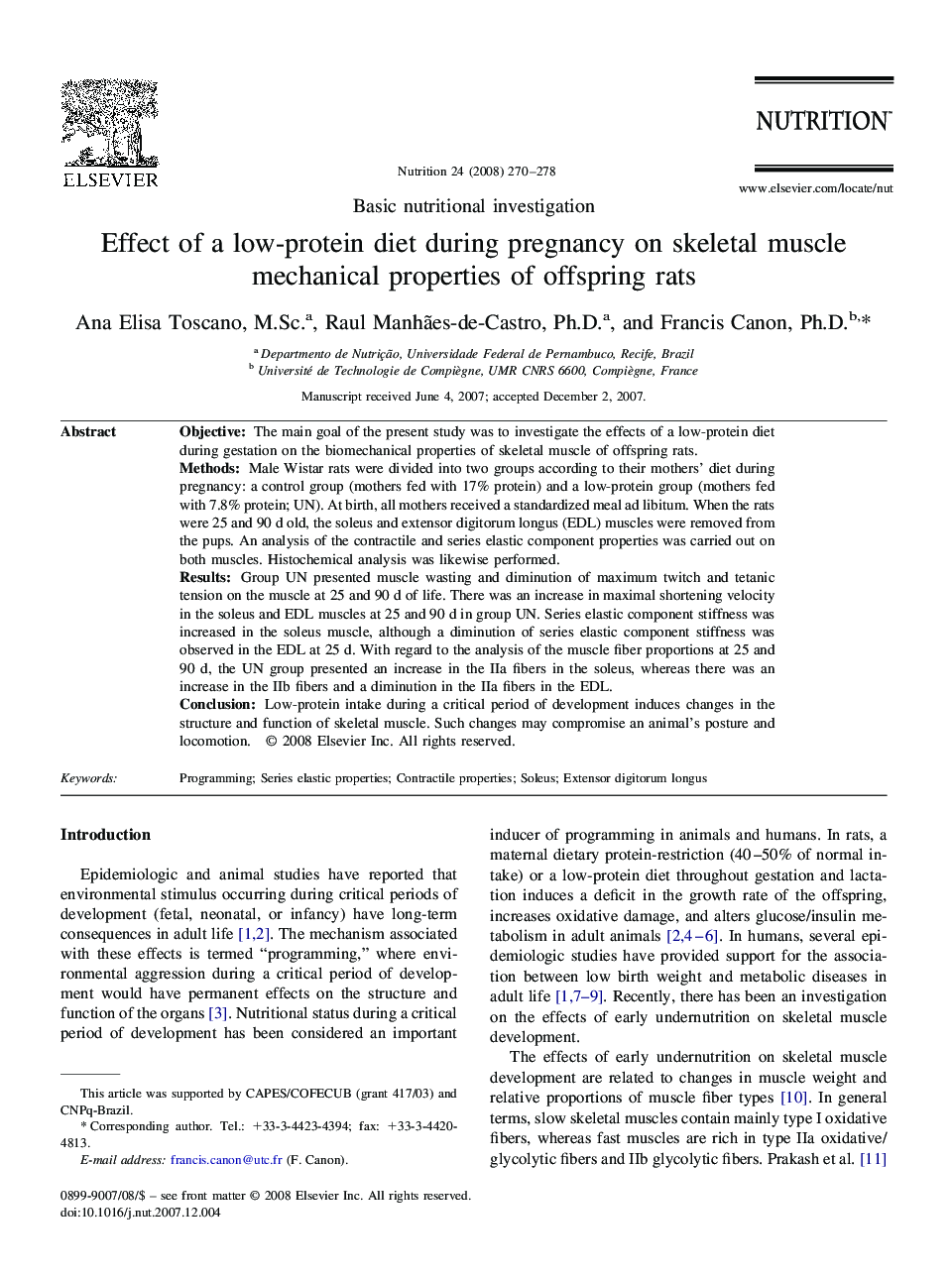| Article ID | Journal | Published Year | Pages | File Type |
|---|---|---|---|---|
| 3277286 | Nutrition | 2008 | 9 Pages |
ObjectiveThe main goal of the present study was to investigate the effects of a low-protein diet during gestation on the biomechanical properties of skeletal muscle of offspring rats.MethodsMale Wistar rats were divided into two groups according to their mothers’ diet during pregnancy: a control group (mothers fed with 17% protein) and a low-protein group (mothers fed with 7.8% protein; UN). At birth, all mothers received a standardized meal ad libitum. When the rats were 25 and 90 d old, the soleus and extensor digitorum longus (EDL) muscles were removed from the pups. An analysis of the contractile and series elastic component properties was carried out on both muscles. Histochemical analysis was likewise performed.ResultsGroup UN presented muscle wasting and diminution of maximum twitch and tetanic tension on the muscle at 25 and 90 d of life. There was an increase in maximal shortening velocity in the soleus and EDL muscles at 25 and 90 d in group UN. Series elastic component stiffness was increased in the soleus muscle, although a diminution of series elastic component stiffness was observed in the EDL at 25 d. With regard to the analysis of the muscle fiber proportions at 25 and 90 d, the UN group presented an increase in the IIa fibers in the soleus, whereas there was an increase in the IIb fibers and a diminution in the IIa fibers in the EDL.ConclusionLow-protein intake during a critical period of development induces changes in the structure and function of skeletal muscle. Such changes may compromise an animal’s posture and locomotion.
